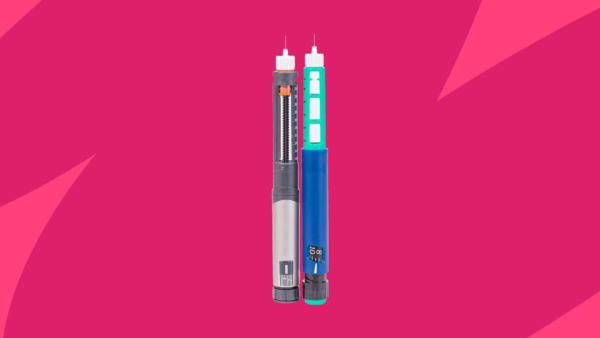Is Nuedexta covered by insurance? | How much does Nuedexta cost without insurance? | How to get Nuedexta without insurance
Nuedexta is a brand-name prescription drug that treats pseudobulbar affect (PBA). Consisting of involuntary and unexpected outbursts of crying or laughing unrelated to mood, PBA is a relatively common symptom of underlying neurological conditions, such as stroke, brain injury, dementia, multiple sclerosis, Parkinson’s disease, or amyotrophic lateral sclerosis (ALS). PBA is caused by faulty nerve activity in the brain, not by emotions. Nuedexta combines two common generic drugs: dextromethorphan hydrobromide, its active ingredient, and quinidine sulfate. Most commonly used as a cough suppressant, dextromethorphan reduces PBA episodes. Quinidine, a heart rhythm medicine, is an inhibitor of the enzyme that breaks down dextromethorphan, increasing its concentration in the brain. Nuedexta is a premium-priced drug with no generic or over-the-counter equivalents. However, people without insurance have more than one way to save money on a Nuedexta prescription.
What is the generic for Nuedexta?
There is no generic version of Nuedexta, the only drug FDA-approved to treat PBA. Its active ingredients, dextromethorphan and quinidine, are commonly prescribed generic drugs, but only Nuedexta contains both dextromethorphan and quinidine.
Is Nuedexta covered by insurance?
Nuedexta is covered by some health insurance plans and nearly all Medicare prescription drug plans. However, some plans may require prior authorization or impose quantity limits.
How much does Nuedexta cost without insurance?
People without insurance coverage usually pay a retail price of $1,835 for 60, 20–10 mg capsules, or about $30 per capsule. With twice-daily dosing, that’s enough medicine to last 30 days. A full year of prescription refills, then, adds up to almost $22,000 a year.
Health insurance can help to save money, but the final out-of-pocket cost is hard to predict. Various health plans classify Nuedexta differently in their formularies, anywhere from the lower copay cost tiers (Tier 2) to the highest copay cost tier (non-preferred), so copay costs can vary widely.
For people without insurance, there is no lower-priced generic alternative that can be used instead. However, there are other drug therapies that are both effective and less cost prohibitive. Some are listed in the table below, and additional information about these treatment options can be found by clicking the link below. Before making a decision, however, ask a healthcare provider for medical advice.
RELATED: Nuedexta alternatives: What can I take instead of Nuedexta?
Compare Nuedexta prices to related drugs |
|||
|---|---|---|---|
| Drug name | Price without insurance of brand-name drug | SingleCare price | Savings options |
| Nuedexta | $1,835 for 60, 20-10 mg capsules | $1,334 for 60, 20-10 mg capsules of brand-name Nuedexta | See updated prices |
| Amitriptyline | $25 for 30, 25 mg tablets | $4 for 30, 25 mg tablets of generic amitriptyline | See updated prices |
| Nortriptyline | $32 for 30, 25 mg capsules | $1 for 30, 25 mg capsules of generic nortriptyline | See updated prices |
| Sertraline | $73 for 30, 50 mg tablets | $4 for 30, 50 mg tablets of generic sertraline | See updated prices |
| Fluoxetine | $60 for 30, 20 mg capsules | $4 for 30, 20 mg capsules of generic fluoxetine | See updated prices |
| Escitalopram | $118 for 30, 10 mg tablets | $4 for 30, 10 mg tablets of generic escitalopram | See updated prices |
Prescription drug prices often change. These are the most accurate medication prices at the time of publishing. The listed price without insurance references the price of brand-name drugs (unless otherwise specified). The listed SingleCare price references the price of generic drugs if available. Click the link under “Savings options” to see updated drug prices.
How to get Nuedexta without insurance
With a monthly expense of $1,835, Nuedexta could be costly without health insurance. Additionally, there is no generic version of Nuedexta. However, there are other cost saving options, starting with a SingleCare prescription discount card. You can always start by asking your prescriber for a free sample. They may have a free 10-day sample to give out, which can buy you some time to look into other options. Continue reading for additional ways to save.
1. Save $500 on Nuedexta with a SingleCare savings card
SingleCare’s lowest Nuedexta discount price is $1,334, a savings of $500 off the average retail price. Discounts will vary by participating pharmacies, so visit SingleCare’s Nuedexta coupon page to compare savings.
2. Consider purchasing health insurance
Because Nuedexta can cost over $20,000 per year in addition to all the costs of treating the underlying medical condition, health insurance premiums and copays may be the most affordable option. However, it’s important to closely examine the drug formulary before choosing an insurance plan. Nuedexta is relegated to a low tier in some plans, meaning the copay cost could be low. Some plans don’t cover Nuedexta or place it in the highest tier, meaning copay costs could be high. Additionally, check the cost of other prescription drugs you may need to make sure their copays are cost-effective.
3. Enroll in Medicaid
Although Nuedexta can cost over a thousand dollars a month, some Medicaid plans cover the drug. Administered through the states, Medicaid has income and other eligibility requirements. If a person qualifies, premiums and copays—even for higher-priced drugs like Nuedexta—are designed to be affordable. Check your state’s Medicaid website for eligibility requirements, enrollment instructions, and additional information.
4. Ask the prescriber about other treatment options
If a more economical alternative to Nuedexta is necessary, ask the prescribing healthcare provider about other drug treatment options. Some drugs are effectively used off-label to reduce PBA episodes. All are available as lower-cost generics, including tricyclic antidepressants, SSRIs, other antidepressants, dopamine agents, and the anticonvulsant Lamictal (lamotrigine). They work differently and common side effects may vary, so get medical advice from a healthcare professional.











